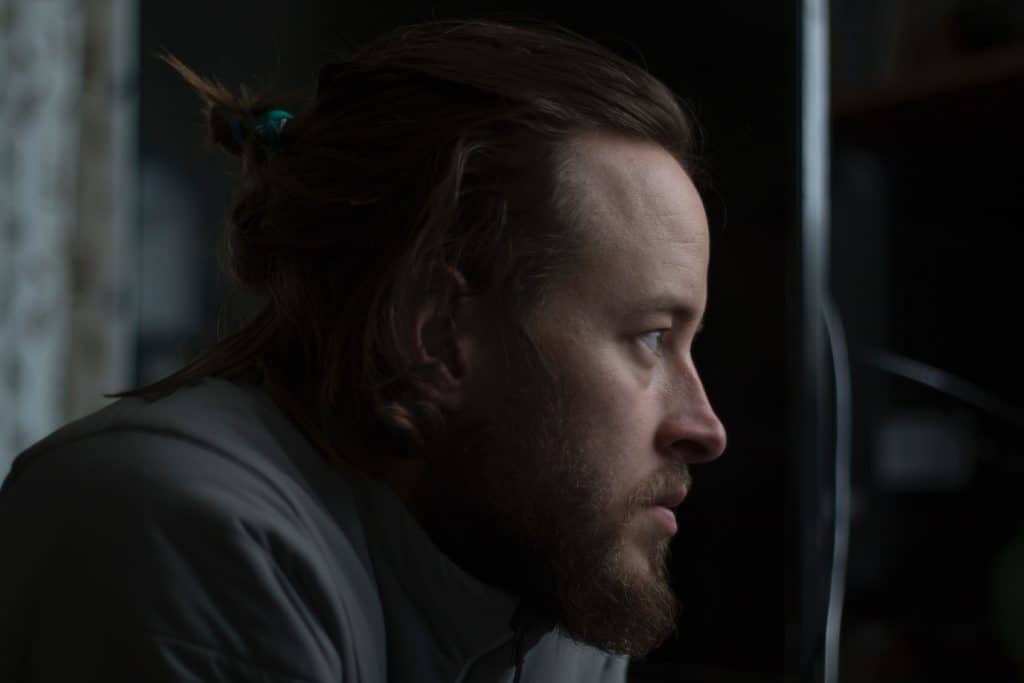By general definition, codependency is an adaptive coping mechanism used compulsively by those trying to find personal worth and value by meeting perceived needs of others.
Menu
Menu
By general definition, codependency is an adaptive coping mechanism used compulsively by those trying to find personal worth and value by meeting perceived needs of others.
By general definition, codependency is an adaptive coping mechanism used compulsively by those trying to find personal worth and value by meeting perceived needs of others.
Jill told her counselor about her efforts to save two failed marriages, both with husbands who struggled with substance abuse and who were abusive and unfaithful. And now her third marriage was playing out the same way.
In the course of their discussion, Jill opened up about her past: Dad had abandoned the family when she was 7, so she was responsible for her little sisters while Mom worked two jobs. “That’s a lot responsibility for a young girl,” the counselor gently affirmed. “Has anyone ever mentioned that having to take care of your family when you were growing up might be affecting your relationships as an adult?”

By general definition, codependency is an adaptive coping mechanism used compulsively by those trying to find personal worth and value by meeting perceived needs of others.
Bottom line: Codependency is a mixed-up motivation to help. Helping becomes a have to out of a sense of guilt and survival instead of a want to out of a spirit of voluntary service.
But that goes against God’s instruction: “Each one of us must give as he has decided in his heart, not reluctantly or under compulsion, for God loves a cheerful giver” (2 Corinthians 9:7, ESV).
Relationships should be interdependent (to be mutually responsible to each another), not codependent (to be responsible for someone else). That doesn’t mean we ignore legitimate circumstances of children or those who are sick, elderly, or disabled. Instead, it means we seek the Lord’s wisdom about our motives and whether our friend or loved one has a true need.

Codependency is too complex to pinpoint a single cause. However, it often starts in childhood. Children who grow up in a dysfunctional home often find themselves wanting or needing to help others because the adults in the family can’t or won’t.
In Jill’s case, her mother felt like she didn’t have a choice but to have Jill take care of the other two kids. With Dad out of the picture, Mom had to work more. And for any number of reasons, Mom didn’t build strong networks with other adults who could come alongside the family. Sadly, she didn’t realize the long-term harm that decision would cause Jill.
Over time, coping can become compulsive — the idea that “Someone has to be responsible, so it has to be me.” And a child raised in that environment often becomes an adult who feels compelled to fix, rescue, or control others.
So how do we know whether our help is well-founded or given out of guilt and survival? We have to pay attention to signs of codependency and be honest with ourselves about red flags.
You or a loved one might be codependent if you:
Scripture tells us, “Christ has set us free to enjoy our freedom. So remain strong in the faith. Don’t let the chains of slavery hold you again” (Galatians 5:1, NIRV). If you grew up in a dysfunctional home where you felt enslaved to the needs of others, and you now suffer from codependency as an adult, take heart: You can recover.
Codependency is likely to develop in any situation where someone can’t function on their own — where someone seems to need us, and we need to be needed.
David was exhausted from dealing with his wife’s alcoholism. He knew that his pastor’s brother battled drug addiction — and that his pastor understood the desire to see change — so he decided to share everything. The pastor surprised David with his response: “David, I know you love your wife. You’ve tried throwing away her hidden liquor, covering for her when she’s hungover and her boss calls, and threatening legal action. But have you considered whether your actions are enabling her instead of helping?”
Codependency has long been associated with substance abuse. Treatment professionals first noticed that the spouse of an alcoholic could be as dependent on fixing, rescuing, and controlling the alcoholic as the alcoholic was dependent on alcohol. So spouses were described as codependent. The couple was in a destructive dance.
Substance abuse isn’t the only setting for codependency, however. The struggle could be with mental illness, irresponsibility, or any number of issues. Codependency is likely to develop in any situation where someone can’t function on their own — where someone seems to need us, and we need to be needed.

Being needed feels good. And being able to safely and confidently give and receive help is part of a healthy interdependent relationship (where we are mutually responsible to each other). But for people who struggle with codependency (feeling responsible for someone), the appeal of being needed gets distorted. It usually plays out like this: We meet someone who doesn’t necessarily look needy at first glance; in fact, they may be fun and charismatic. The more we get to know them, though, the more we mistakenly believe that they could do better with our help. Maybe they have a bad habit, a dysfunctional background, seem down on their luck, or have a few rough edges. So we enter into a relationship and ignore signs of trouble. What felt so right in the beginning of the relationship becomes uncomfortable, aggravating, and unpredictable. It deteriorates into a situation that feels unsafe and out of control. One dance partner becomes the whole focus of the relationship — the “problem person.” And the overly-caring person — the codependent person — is back in familiar territory: She feels the need to be needed, and she tries harder and harder to make things right.
Both people play an equal role in the downward spiral of dysfunction. Counselors call this the vicious cycle.
Each person’s fears and associated behaviors intensify their partner’s fears and behaviors in a continual cycle of conflict, hurt feelings, anger, revenge, and despair.
Picture a circle constantly turning. On one side of the circle is the problem person, and on the other side is the codependent person. Each of them provides energy to power a continuing cycle of hurt.
For example, if the problem person is abusive, old fears he carries (such as fear of being hurt, manipulated, and losing control) fuel new hurtful behaviors. At the same time, the codependent’s old fears (like fear of being unloved, abandoned ,and powerless) create new controlling behaviors toward the abuser.
The codependent’s intent is to help, but the outcome is to enable.

To enable is to give opportunity or make it easier for something to happen. So in the case of codependency, enabling starts with good intentions: to make life easier for the one who seems to be struggling. But enabling robs people of taking responsibility and facing consequences for their actions.
In David’s case, he’s unintentionally enabled his wife’s alcoholism. He might ignore the drinking, deny its harm, nag his wife, cover for her, throw away her alcohol, bail her out of jail, do things for her that she should do herself, keep her problem a secret, demean her, worry about her, and threaten consequences but not follow through.
Unfortunately, his behaviors, while well-intentioned, make her worse. They also harm him. His efforts to fix, rescue, and control his wife only increase his hurt, fear, resentment, and stress.
What a spouse dependent on alcohol needs is for their partner to provide clear limits and stiff consequences. And what that enabling (codependent) partner needs is the courage and willingness to provide tough love. If she isn’t willing and able to stop drinking, and he’s not willing and able to provide necessary boundaries and consequences, nothing will change — and the cost to both of them will be high.
No one would enter a relationship with a problem person if they knew the true costs of playing the role of codependent. But sometimes we develop rose-colored glasses syndrome: We become enamored with the strengths of a person. Although we have some awareness of their weaknesses, we choose to downplay those flaws.
Brianna’s doctor had known her since she was a child. He could tell she was under a lot of stress, and he was worried about signs of abuse. He looked at her kindly and got right to the point: “You’ve lost 10 pounds since I last saw you, and you’re awfully young to have high blood pressure and chest pains. And you said you got that bruise on your face by falling and hitting the couch. But it’s safe to be honest with me. Is your husband abusing you?”
No one would enter a relationship with a problem person if they knew the true costs of playing the role of codependent. But sometimes we develop rose-colored glasses syndrome: We become enamored with the strengths of a person. Although we have some awareness of their weaknesses, we choose to downplay those flaws.
Maybe the other person was a lot of fun to begin with, but down the road it became obvious that they’re foolish. Or maybe they appeared to be a strong leader, but they became controlling and abusive. What if their happy-go-lucky spontaneity turns out to be unpredictability caused by mental illness or addiction?

If you feel stuck in a relationship with a problem person, you’ve faced significant heartache — and you might feel like you’ve lost more than you ever thought possible:
A loss of even one of these important aspects of our humanity would be difficult to deal with. Chances are good, though, that you feel the effects in most of the areas. But your situation is far from hopeless.

The first step toward healing is to be honest with yourself about the cost of codependency. Find someone trustworthy to help you grieve your losses. Not sure where to turn? Call our licensed counselors for a free over-the-phone consultation. They can also give you a list of qualified therapists practicing in your area so you can have ongoing support.
The next step is to start caring for yourself. Loving yourself isn’t selfish; it’s a God-given commandment (see Mark 12:28-31). No matter how long you’ve been in the harmful role of codependent, you can build a new life by understanding one thing: the importance of personal boundaries.
Personal boundaries mark where we end and where someone else begins. They are limits we set and defend in life and relationships.
Heather was part of a support group at church. She listened as Celeste described how she locked her cheating husband out of the house — and suddenly Heather couldn’t contain her rising anger. “Well I’m fighting for my marriage! I don’t want to be the reason my husband leaves. I’ll never push him out the door because he can’t stop looking at porn.”
The group grew silent. Then Celeste graciously replied, “I want to save my marriage, too. We all have unique circumstances, but let me explain: My husband continually disrespects my most basic values and boundaries with his infidelity. My decision to lock him out communicates that I deserve respect.”

Picture the fence around your property — or the front door of your home. It protects what’s important to you. It delineates what you’re responsible for. And it limits others from encroaching on your personal space. Without it, you’d have difficulties with careless neighbors, stray animals, and anyone who wanted to take advantage of what’s yours.
Personal boundaries mark where we end and where someone else begins. They are limits we set and defend in life and relationships. Boundaries define who we are, protect what we value, show what we’re responsible for, and keep us safe. We have the right and the obligation to safeguard our own well-being.
When we have healthy personal boundaries, we enjoy relationships characterized by respect and fair treatment. However, if we don’t voice and enforce our boundaries, we’re vulnerable to being used or abused.
In any type of dysfunctional relationship, one person lacks boundaries, and the other lacks respect for boundaries. In codependent relationships, people often lack both personal boundaries and respect for other’s boundaries. It’s not that they chose this path — they simply don’t know any other way. The family they grew up in modeled a flawed way of relating to each other.
Christians can get confused about the goodness of boundaries as easily as anyone else. The Bible does teach us to care for and help others (Galatians 6:2). And God does expect us to help those who are truly overburdened (widows, orphans, the poor, and the disabled).
But the Bible doesn’t teach us to be enslaved to someone’s felt needs. (Felt needs are self-perceived wants or desires — not genuine lack of basic or true needs.) After all, people are obligated to take care of their own day-to-day life responsibilities (Galatians 6:5).
So it’s not hard to see why we struggle with boundaries. Our own false beliefs and fear-based feelings create confusion. We might think, for example:
Can you imagine Jesus helping others for those reasons? Of course not. He helped others because He was doing His Father’s work for His Father’s glory. He willingly met the needs of those who were hungry, sick, and demon-possessed — but He didn’t help everyone, and He didn’t help all the time.

Jesus set personal boundaries and prioritized self-care. He wasn’t driven by false beliefs or fear-based feelings. He didn’t allow anyone to use Him for their selfish agendas. He stood up for Himself when no one else would. Jesus set limits, and He never felt guilty about enforcing them.
In the same way, setting and maintaining personal boundaries is a critical step in overcoming codependency. If we’re going to be healthy people and have healthy relationships, we must have our own limits. If we don’t, we lose self-respect, the respect of others, and even our own identity.
In codependency, others become our foreground, God becomes the background, and self is lost altogether. That’s not God’s design, though.
Jonathan and Emily’s Bible study discussion was on loving our spouse as Christ loves the Church. The whole time Emily was thinking about how Jonathan loved his work more than her — and she was plotting a way to get the group to call out his problem. But another member’s comment brought sudden conviction. “I was obsessed about Rick’s distraction with his laptop and cell phone,” Joni said. “I’ve realized, though, that my focus needs to be on Christ first. If there’s some way I can help Rick, great. But only God can motivate a person to change, and I’m certainly not God!”

We can learn a lot about ourselves by noticing where we focus our attention. What we routinely focus on becomes foreground (the center of our attention) and everything else becomes fuzzy background. In codependency, others become our foreground, God becomes the background, and self is lost altogether. That’s not God’s design, though.
The Lord teaches us two overarching commandments in Matthew 22:36-40 (ESV):
People struggling with codependency typically love others much more than they love themselves. But if we make others (or even ourselves) the center of our attention instead of Christ, the whole picture is out of focus. Nothing in life works well if Christ is the background.
However, when Christ is the center of our attention, letting God be God is much easier. We don’t have to compulsively fix, rescue, or control others. God is the source and ruler of all things, and we can trust Him to work powerfully in the lives of those we care about.
At the same time, it’s also true that God allows us to help accomplish His purposes in other peoples’ lives. So how do we partner with Him but avoid playing the role of savior — of codependent? It starts by understanding our identity in Christ.

Overcoming codependency doesn’t happen overnight. But it can happen. Be honest with yourself, trust God’s design for healthy relationships, invite wise and caring people to walk alongside you, and take it one step at a time.
Change is never easy — and we couldn’t possibly cover every scenario and specific need in this space. That’s why we encourage you to reach out for ongoing support and accountability from solid sources:
Remember: one step at a time. Hold on to hope, lean on God’s strength, rest in His unfailing love, and trust Him to connect you with safe people. You can overcome codependency.
(For simplicity’s sake, we’ll identify the problem person described in this article as the husband. But wives are just as likely as husbands to be the primary force behind marital conflict.)
In a dysfunctional marriage, the husband — who might even profess to be a Christian — could be addicted, abusive, adulterous, mentally ill, controlling, or irresponsible. But instead of depending on the Lord, he’s dependent on getting high, getting his own way, and getting what he wants outside of the marriage.
The wife — in trying to rescue, fix, or control her husband — becomes codependent. And any time she tries to get him to change his attitude or behavior, he responds by doing more of the very things that make her feel despondent and trapped.Their relationship has become a vicious cycle of Mutual Assured Destruction — a MAD marital mess.
Unfortunately, the standard practice of once-a-week counseling rarely works in this situation because the husband is self-centered, deceptive, unaccountable, and disinterested in change. He has stiff-armed God and lost respect for his wife.Offering him personal insight or marriage tools would be counter-productive. The marriage relationship, like marriage counseling, requires two cooperative people. If one is resistant, belligerent, or faking cooperation, traditional paths to restoration aren’t effective.
Thankfully, God’s invitation to true change and lasting healing is constant. Restoring a dysfunctional marriage is difficult but not impossible — because with God all things are possible (Matthew 19:26). But first, He needs to get the problem person’s attention.

God is both love and justice. He is both compassion and consequences. He balances tender love with tough love.Throughout the Bible, when someone avoids God’s will, God can make Himself known through a low whisper, or He can show up like the Plagues of Egypt, decimating life and property (1 Kings 19:12 and Exodus 7:14-12:30). God can get our attention, whatever it takes.
We can apply that same truth when dealing with a wayward spouse: Create consequences. More problem spouses straighten up with a tough love approach than with any other effort. We routinely use consequences with children as a loving measure to help them stay within necessary boundaries. So why are we reluctant to use consequences with an adult we love?
Maybe we fear blowback. Maybe we don’t know how. Maybe we think we have to resolve our issues before we can impose consequences on our spouse. Or maybe we believe that enforcing consequences would be ungodly. Whatever the reason, most Christians hesitate to use discomfort — one of the most powerful tools God has given us to influence change in someone’s life.
You can’t change an unmotivated spouse by offering common sense or by nagging, berating, crying, or pleading. However, you and God can work together to get your spouse’s attention by creating discomfort for him. How? Set personal boundaries, and enforce those boundaries with natural, logical consequences.

Are you familiar with the biblical account of Joshua getting ready to battle the giants of the Promised Land? God told Joshua, “Be strong and courageous. Do not fear or be in dread of them, for it is the Lord your God who goes with you. He will not leave you or forsake you” Deuteronomy 31:6, ESV).
Don’t try to fight this battle alone. You need the wisdom and support of God and others to help you stand firm and press ahead. Connect with a licensed Christian counselor or a Christian life coach who can help you think things through, make a plan, and commit to carrying it out. They can teach you what boundaries look like and what consequences could be most effective with your spouse.
And if you’re in an abusive marriage, you need to take extra measures to keep yourself and your children safe. Don’t hesitate to call 911 if you’re in immediate danger. For other suggestions, read “Play It Safe: Dealing With Domestic Violence.” You can also call our licensed counselors at 1-800-232-6459 for a free over-the-phone consultation — or you can get help 24/7/365 through The National Domestic Abuse Hotline at 1-800-799-7233.

Therapists often hesitate to provide a detailed plan for boundaries and consequences because they don’t have to live with the outcome. But you do need a basic idea of where to start — so here are some action steps to consider. Run these by your counselor or life coach for additional insight. These suggestions aren’t the only options for your situation; you should be committed but flexible, and you need to be led by the Holy Spirit.
And while it might not seem possible at this point, we encourage you to anticipate a day when your story will encourage others. No matter the outcome on this earth, our suffering is never wasted when we trust God with the bigger picture: “Blessed be the God and Father of our Lord Jesus Christ, the Father of mercies and God of all comfort, who comforts us in all our affliction, so that we may be able to comfort those who are in any affliction, with the comfort with which we ourselves are comforted by God” (2 Corinthians 1:3-4, ESV).
Call our licensed counselors to talk about anything weighing on your heart. And for a more in-depth discussion, we recommend The Christian Codependence Recovery Workbook.

Dr. Russ Rainey practiced as a Licensed Professional Christian Counselor for over 30 years. He has served five churches as Director of Counseling, Support, and Recovery, and he has taught graduate courses in Christian Counseling at Southwestern Baptist Theological Seminary in Fort Worth, Texas, and at Dallas Baptist University in Dallas, Texas. He served as Regional Outpatient Director for Rapha (a Christian Psychiatric Hospital Corporation), and was the Vice President of Coaching Services at Matthew 28 Global Ministries.
Copyright © 2019, Russ Rainey, Ph.D. Used with permission.